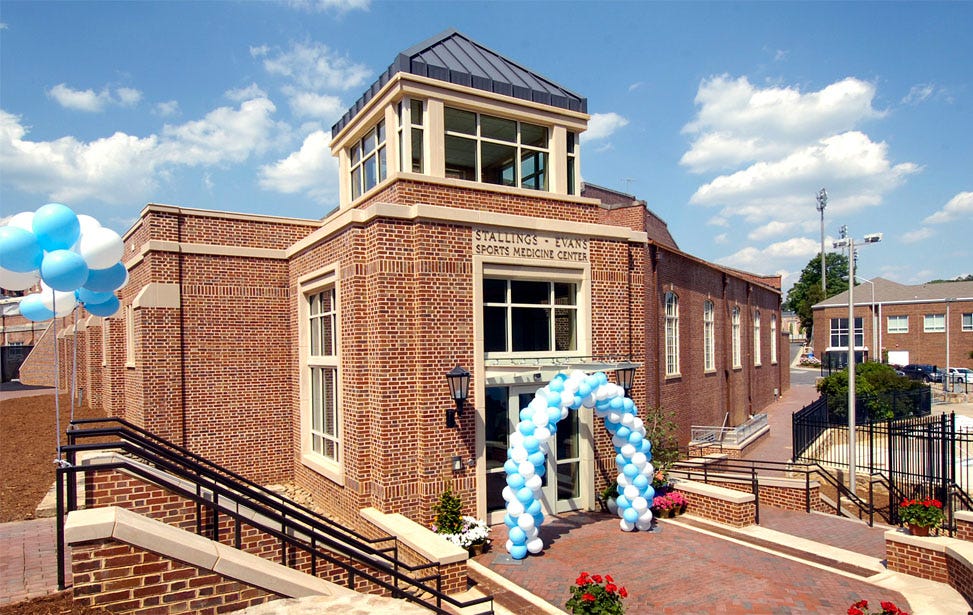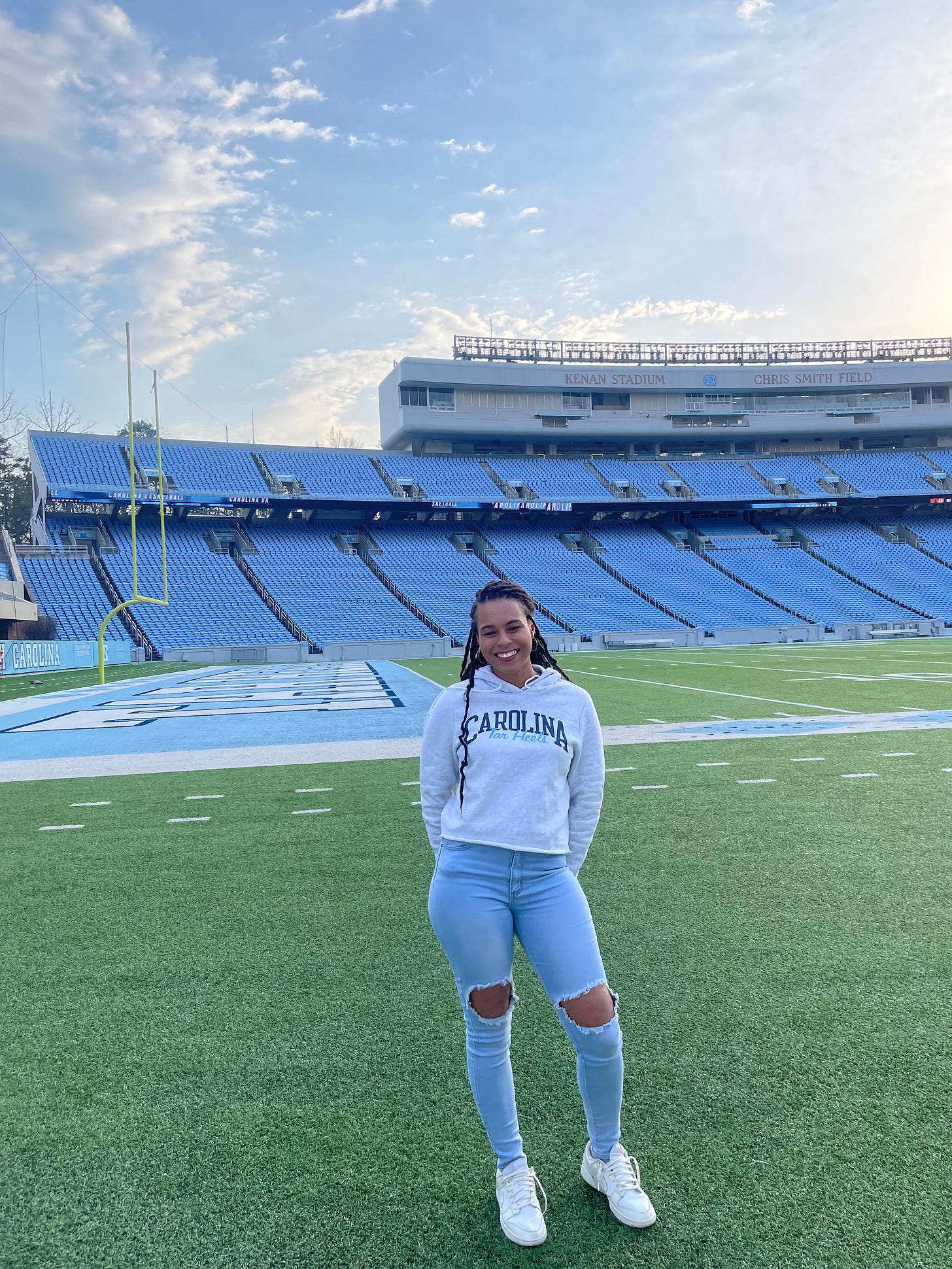My Next Chapter
This fall, I will carry on the legacy of Matthew Gfeller as I pursue my PhD at the Matthew Gfeller Center at the University of North Carolina at Chapel Hill.
My nephew once told me that he did not know a black man with an advanced degree who was not an athlete. Unfortunately, this is the harsh reality for minorities in my hometown of Louisville, Kentucky. We are fed a narrative that sports are the only avenue to success, and football is one of the biggest, most celebrated there. However, rarely are individuals educated about the immediate and long-term ramifications of sports related concussions, an injury very prominent at all levels of the sport of football. I know many people who are currently dealing with short term memory loss, chronic headaches, and attention deficits as a result of a sports induced concussion.
In the fall, I will begin my PhD at the Matthew Gfeller Center at the University of North Carolina at Chapel Hill. When I first applied to the Matthew Gfeller Center I was unaware of who Matthew was. I naively assumed the center was named after a huge donor. Upon learning of Matthews story, I was affirmed in my decision of making a career change. As a speech language pathologist, I have extensive experience with stroke patients and the brain and language but none when it comes to sports related injuries.
Under the Friday Night Lights, on August 22, 2008 Matthew Gfeller was given an opportunity to play in the fourth quarter of his high school football game. His parents were very excited that he was finally given the opportunity to go on the field and play. Matthew was a fifteen-year-old sophomore at R.J. Reynolds High School in Winston-Salem, North Carolina. He loved football and needless to say, was excited to play in a varsity game. However, this game would change the course of football in North Carolina forever.
Matthew was involved in a helmet-to-helmet hit and subsequently suffered a traumatic brain injury. He was immediately knocked unconscious. Unfortunately, Matthew never regained consciousness and died two days later in the hospital. Following his death his parents Lisa and Bob Gfeller dedicated their lives to preventing any other parents from losing their child to a football related injury.
The Gfeller-Waller Concussion awareness act was passed in 2011 to protect the safety of student-athletes in North Carolina. The three major focuses of this law were to increase education, action and improve post-concussion protocol implantation. The goal is to improve and make clear return to play protocols following a sustained concussion. In addition to this law Bob and Lisa created the Matthew Gfeller Foundation to ensure safety of children in youth football. They aided in the building and implementation of the Matthew Gfeller Sport-Related Traumatic Brain Injury Research Center at the University of North Carolina at Chapel Hill. This TBI center is home to some of the top sports related researchers in the field.
As a sports fan, I want to combine my love of sports with my passion for research related to neurological deficits. By obtaining my PhD, I plan to help the people currently suffering from these ailments and prevent tragedies like the head injury to Matthew Gfeller. Through my research and neuroimaging experience I aspire to aid in the understanding of physiological, psychological, and behavioral characteristics that may predict signs of long-term brain disorders due to sports related concussions, such as Chronic Traumatic Encephalopathy (CTE), dementia, and Parkinson’s disease. My goal is to clarify the speech pathologist’s expertise and contributions to the interdisciplinary treatment. Although I was never afforded the opportunity to meet Matthew Gfeller, I know his name. His legacy will live on and his simple presence on this earth has changed the safety of high school football players in North Carolina.





What an inspirational article. Thanks for sharing and all the best. Susan Rostov
Looking forward to your positive impact and congratulations on your enrollment in UNC's PhD program.